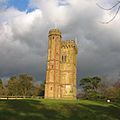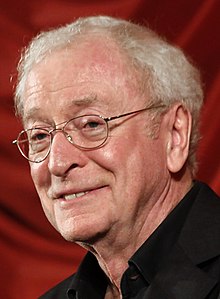Our website is made possible by displaying online advertisements to our visitors.
Please consider supporting us by disabling your ad blocker.
Portal:Surrey
| WikiProject Surrey | Surrey Portal |
The Surrey Portal

Surrey (/ˈsʌri/) is a ceremonial county in South East England. It is bordered by Greater London to the northeast, Kent to the east, East and West Sussex to the south, and Hampshire and Berkshire to the west. The largest settlement is Woking.
The county has an area of 1,663 km2 (642 square miles) and a population of 1,214,540. Much of the north of the county forms part of the Greater London Built-up Area, which includes the suburbs within the M25 motorway as well as Woking (103,900), Guildford (77,057), and Leatherhead (32,522). The west of the county contains part of built-up area which includes Camberley, Farnham, and Frimley and which extends into Hampshire and Berkshire. The south of the county is rural, and its largest settlements are Horley (22,693) and Godalming (22,689). For local government purposes Surrey is a non-metropolitan county with eleven districts. The county historically included much of south-west Greater London but excluded what is now the borough of Spelthorne, which was part of Middlesex. It is one of the home counties.
The defining geographical feature of the county is the North Downs, a chalk escarpment which runs from the south-west to north-east and divides the densely populated north from the more rural south; it is pierced by the rivers Wey and Mole, both tributaries of the Thames. The north of the county is a lowland, part of the Thames basin. The south-east is part of the Weald, and the south-west contains the Surrey Hills and Thursley, Hankley and Frensham Commons, an extensive area of heath. The county has the densest woodland cover in England, at 22.4 per cent. (Full article...)
Selected article
Dorking (/ˈdɔːrkɪŋ/) is a market town in Surrey in South East England about 21 mi (34 km) south of London. It is in Mole Valley District and the council headquarters are to the east of the centre. The High Street runs roughly east–west, parallel to the Pipp Brook and along the northern face of an outcrop of Lower Greensand. The town is surrounded on three sides by the Surrey Hills National Landscape and is close to Box Hill and Leith Hill.
The earliest archaeological evidence of human activity is from the Mesolithic and Neolithic periods, and there are several Bronze Age bowl barrows in the local area. The town may have been the site of a staging post on Stane Street during Roman times, however the name 'Dorking' suggests an Anglo-Saxon origin for the modern settlement. A market is thought to have been held at least weekly since early medieval times and was highly regarded for the poultry traded there. The Dorking breed of domestic chicken is named after the town.
The local economy thrived during Tudor times, but declined in the 17th century due to poor infrastructure and competition from neighbouring towns. During the early modern period many inhabitants were nonconformists, including the author, Daniel Defoe, who lived in Dorking as a child. Six of the Mayflower Pilgrims, including William Mullins and his daughter Priscilla, lived in the town before setting sail for the New World.
Dorking started to expand during the 18th and 19th centuries as transport links improved and farmland to the south of the centre was released for housebuilding. The new turnpike, and later the railways, facilitated the sale of lime produced in the town, but also attracted wealthier residents, who had had no previous connection to the area. Residential expansion continued in the first half of the 20th century, as the Deepdene and Denbies estates began to be broken up. Further development is now constrained by the Metropolitan Green Belt, which encircles the town. (Full article...)
Selected images
Selected biography
Sir Michael Caine (born Maurice Joseph Micklewhite; 14 March 1933) is an English retired actor. Known for his distinct Cockney accent, he has appeared in more than 160 films over a career that spanned eight decades and is considered a British cultural icon. He has received numerous awards including two Academy Awards, a BAFTA Award, three Golden Globe Awards, and a Screen Actors Guild Award. As of 2017, the films in which Caine has appeared have grossed over $7.8 billion worldwide. Caine is one of only five male actors to be nominated for an Academy Award for acting in five different decades. In 2000, he received a BAFTA Fellowship and was knighted by Her late Majesty Queen Elizabeth II.
Often playing a Cockney, Caine made his breakthrough in the 1960s with starring roles in British films such as Zulu (1964), The Ipcress File (1965), The Italian Job (1969), and Battle of Britain (1969). During this time he established a distinctive visual style wearing thick horn-rimmed glasses combined with sharp suits and a laconic vocal delivery; he was recognised as a style icon of the 1960s. He solidified his stardom with roles in Get Carter (1971), The Last Valley (1971), The Man Who Would Be King (1975), The Eagle Has Landed (1976), and A Bridge Too Far (1977).
Caine received two Academy Awards for Best Supporting Actor for his roles as Elliot in Woody Allen's dramedy Hannah and Her Sisters (1986), and as Dr. Wilbur Larch in Lasse Hallström's drama The Cider House Rules (1999). His other Oscar-nominated film roles were in Alfie (1966), Sleuth (1972), Educating Rita (1983), and The Quiet American (2002)—all four of which were for the leading actor category. Other notable performances occurred in the films California Suite (1978), Dressed to Kill (1980), Mona Lisa (1986), Little Voice (1998), Quills (2000), Children of Men (2006), Harry Brown (2009), and Youth (2015).
Caine is also known for his performance as Ebenezer Scrooge in The Muppet Christmas Carol (1992), and for his comedic roles in Dirty Rotten Scoundrels (1988), Miss Congeniality (2000), Austin Powers in Goldmember (2002), and Secondhand Lions (2003). Caine portrayed Alfred Pennyworth in Christopher Nolan's Batman trilogy (2005–2012). He has also had roles in five other Nolan films: The Prestige (2006), Inception (2010), Interstellar (2014), Dunkirk (2017), and Tenet (2020). He announced his retirement from acting in October 2023, with his final film being The Great Escaper, which came out in the same month. (Full article...)
Things you can do
 |
Here are some tasks awaiting attention:
|
- –When a task is completed, please remove it from the list.
Topics
|
Associated Wikimedia
The following Wikimedia Foundation sister projects provide more on this subject:
-
Commons
Free media repository -
Wikibooks
Free textbooks and manuals -
Wikidata
Free knowledge base -
Wikinews
Free-content news -
Wikiquote
Collection of quotations -
Wikisource
Free-content library -
Wikiversity
Free learning tools -
Wikivoyage
Free travel guide -
Wiktionary
Dictionary and thesaurus
| WikiProject Surrey Navigation | |
|---|---|
| Main page | Collaboration | Surrey Portal | |
Previous Page Next Page




































